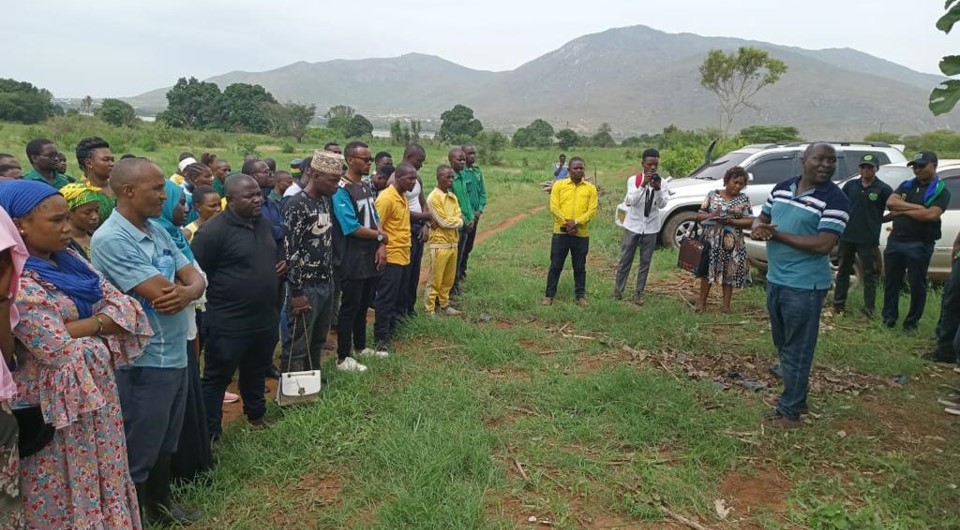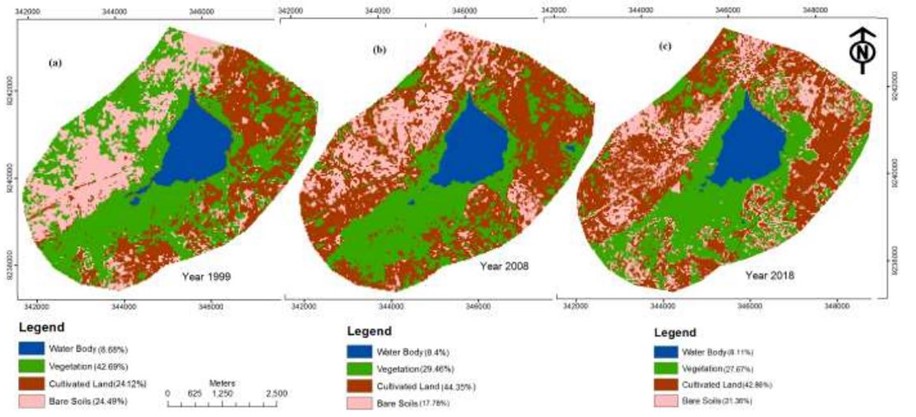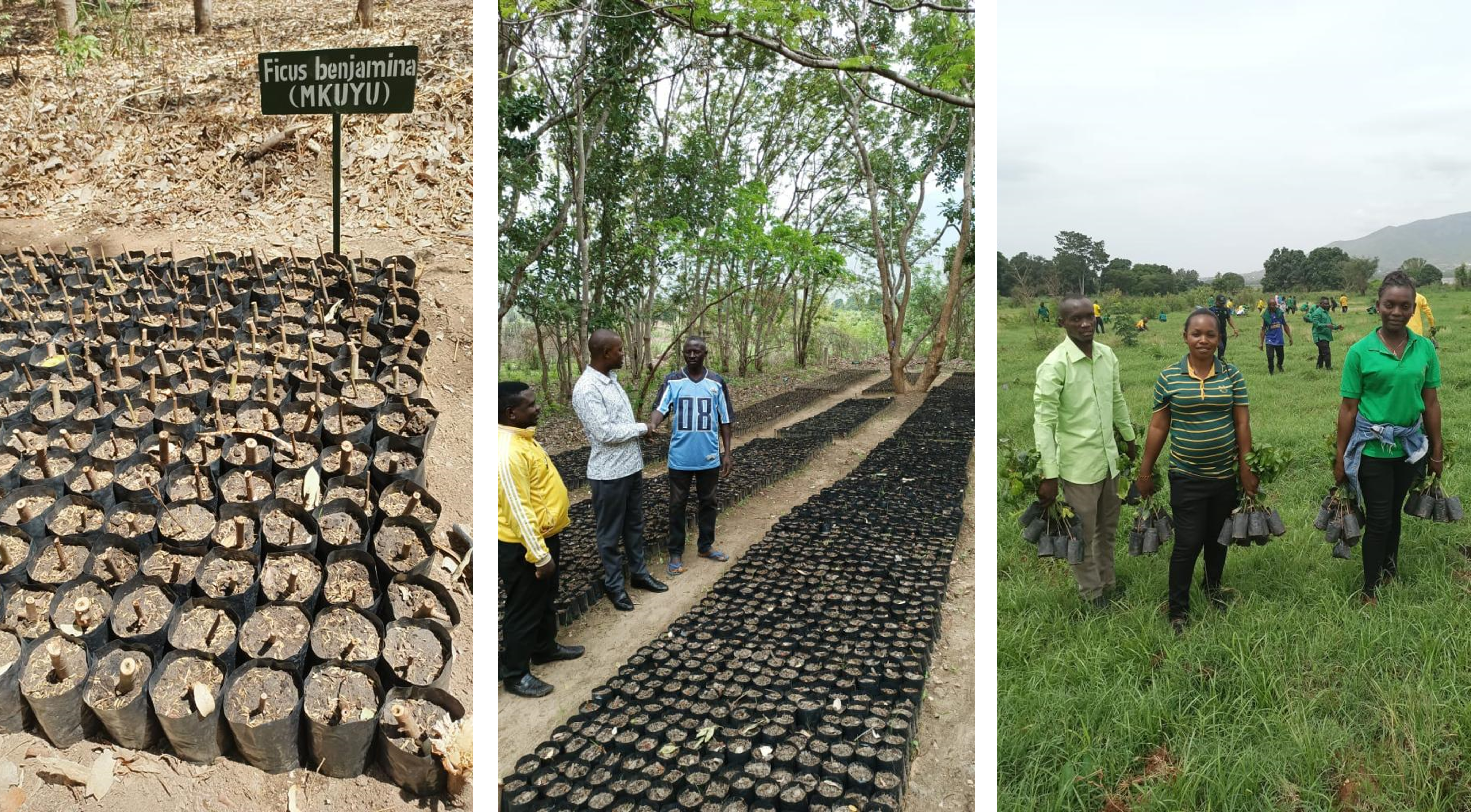Water Operators’ Partnership in Tanzania leads to new tree nursery in Mindu catchment
21 February 2022World Waternet and the Morogoro Urban Water Supply and Sanitation Authority (MORUWASA) collaborate in a Water Operators’ Partnership funded by the WaterWorX programme. Within this partnership, the water operators improve the drinking water supply and sanitation services for the people living in rapidly growing Morogoro.

Partnership between MORUWASA & Waternet
Since 2017, MORUWASA and Waternet cooperate in a Water Operators' Partnership (WOP). A WOP is a peer-support partnership between water and sanitation service providers and work by harnessing skills, knowledge and goodwill within a strong utility to build the capacity and improve the performance of another utility that needs assistance or guidance. This partnership aims to improve the livelyhood of communities in the Morogoro urban area, by focusing on improving the delivery of water and sanitation services, with attention given to the poorest. Read more about the partnership here.
The Mindu Dam
Mindu Dam is the primary source of water for MORUWASA (75%) and the most important water supply source for domestic, commercial and industrial uses in Morogoro. Due to deforestation, sedimentation and climate change, water levels of the Mindu Dam are declining. In order to restore a steady water flow into the Mindu Dam, MORUWASA, together with Wami Ruvu Water Authority, Tanzanian Forest Service, Municipality of Morogoro and Mvomero District Council, submitted a proposal with targeted measures to conserve and restore this precious water resource.
 Mindu Dam Catchment land use classification for the year 1999, 2008 and 2018. From ‘Effects of Climate Changes on Water Resources: A Case of Mindu Dam in Morogoro Municipality, Tanzania’, by Simon R Melchioly, Tanz. J. Sci. Vol. 47(3) 202, https://dx.doi.org/10.4314/tjs.v47i3.33 ().
Mindu Dam Catchment land use classification for the year 1999, 2008 and 2018. From ‘Effects of Climate Changes on Water Resources: A Case of Mindu Dam in Morogoro Municipality, Tanzania’, by Simon R Melchioly, Tanz. J. Sci. Vol. 47(3) 202, https://dx.doi.org/10.4314/tjs.v47i3.33 ().
Involving the community and tree planting
Specific measures include creating awareness on conservation and restoration practices amongst the communities living in the catchment, training of Water Users Associations and organisations dealing with water resources, and a tree planting initiative that includes the establishment of a tree nursery and the planting of 500.000 trees in the catchment area.
The tree nursery is established in January 2022, and at this time, 37.000 seedlings and 30.000 trees have been planted upstream in the Mindu Catchment. The tree nursery will play an important role in the implementation of the other measures. The nursery will be a hub for the community, where training sessions, awareness campaigns and the growing of seedlings will take place over the coming years.
| Why are trees important for water management? Trees retain the climate’s natural balance and help ensure a green and healthy planet. They absorb CO2 from the air, storing the carbon and releasing oxygen, but are also key players in water management. Trees reduce erosion of river banks, silting up of water basins and help maintain groundwater levels. |

Together we can create more impact!
It is rewarding to see that the WaterWorX team was able to contribute to the development of the proposal. Through expert training, coaching, supervision and discussion, MORUWASA was the key player in the creation of a sustainable plan to conserve and restore the Mindu Dam Catchment.
| What is the WaterWorX programme? In line with the WASH strategy ‘Contributing to water, sanitation and hygiene for all, forever’, the Dutch water utilities and the Dutch Ministry of Foreign Affairs engaged into a long-term public private collaboration from 2017-2030. The programme, named WaterWorX, has the overall goal to contribute to improved water and sanitation services in selected cities in Africa and Asia. It has a long-term perspective and aims to provide either first-time basic access or improved service levels for 10 million people by 2030. On November 30, the Dutch Ministry of Foreign Affairs announced the granting of its contribution to the second phase of WaterWorX (link to article, Feb 2022) |
